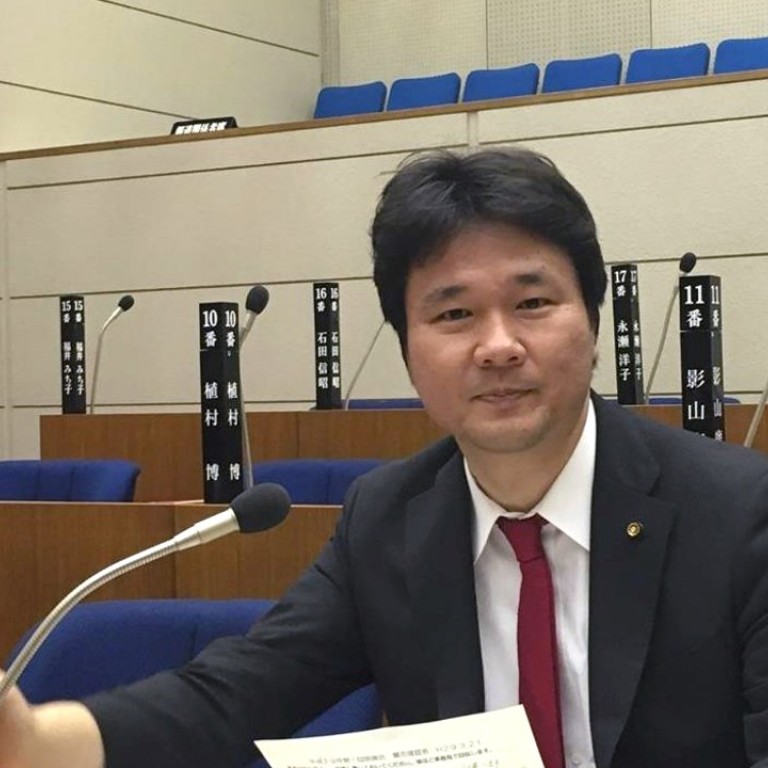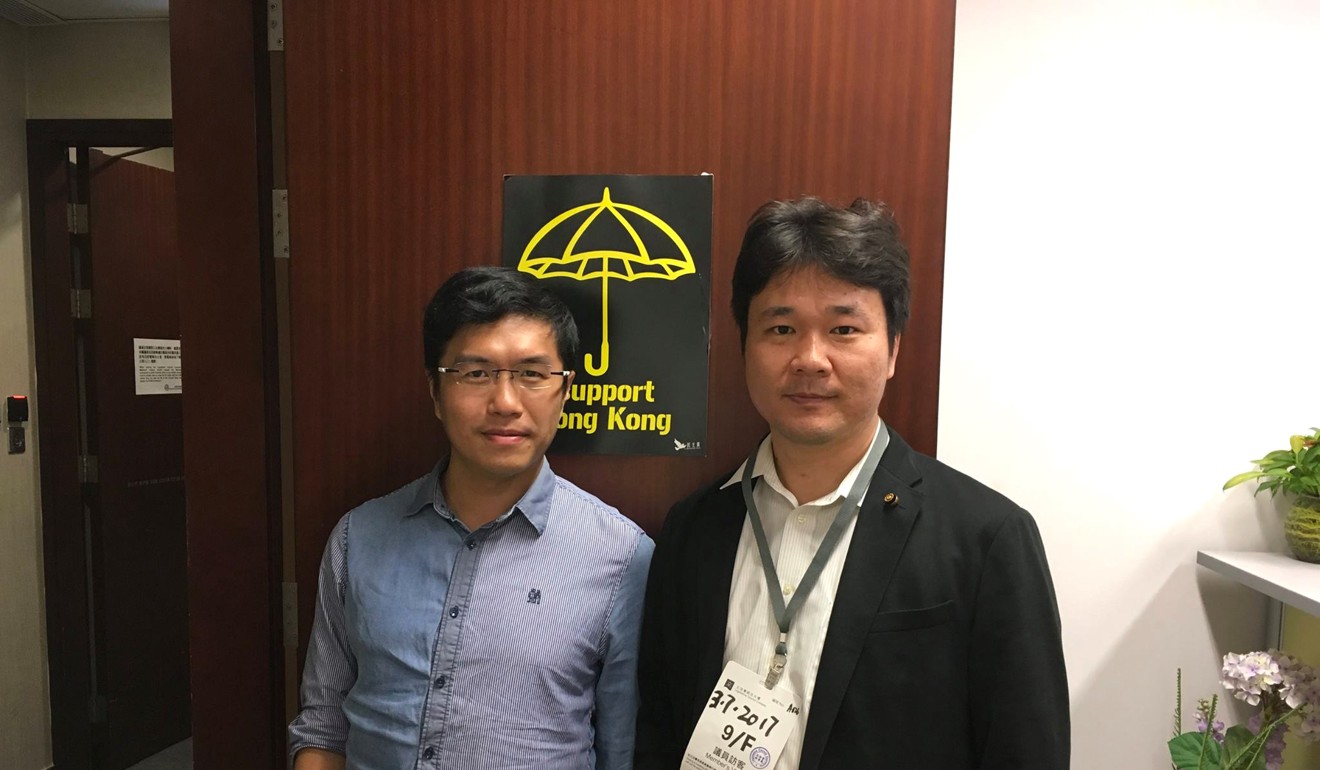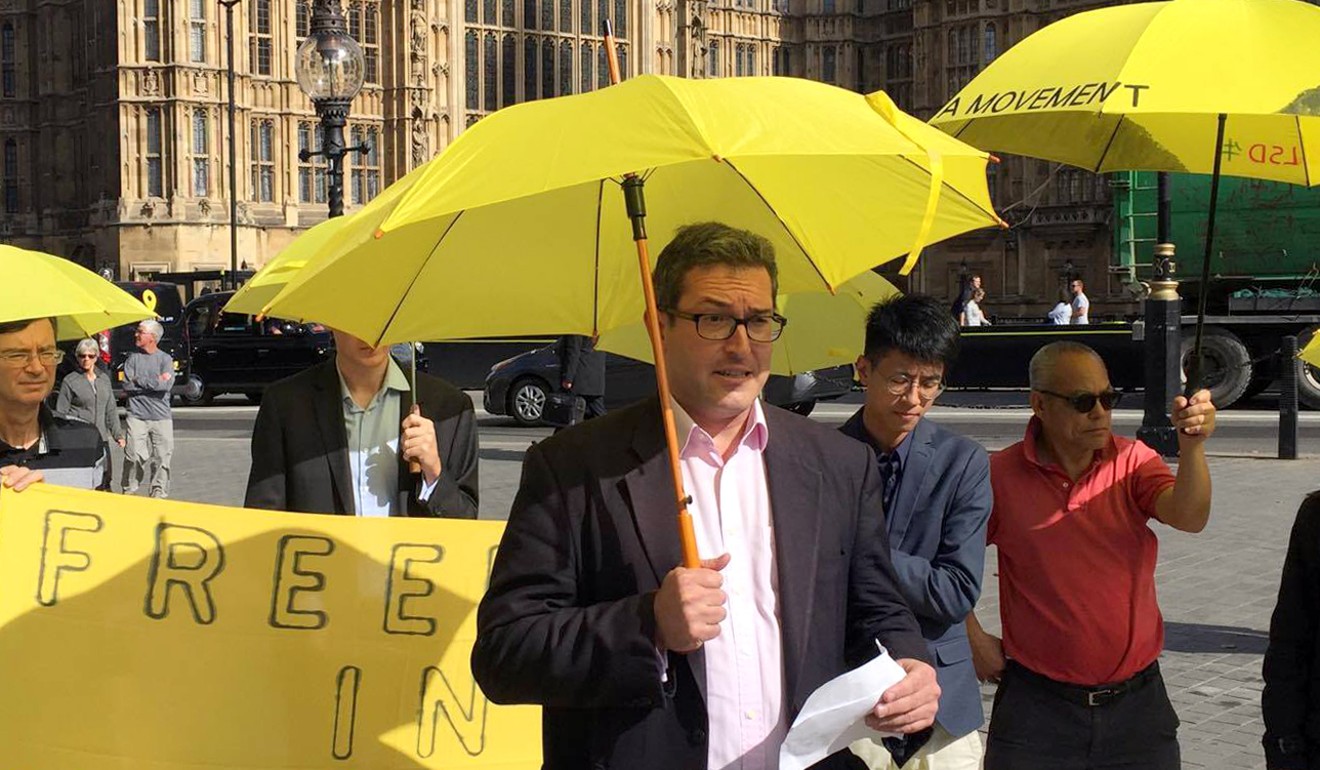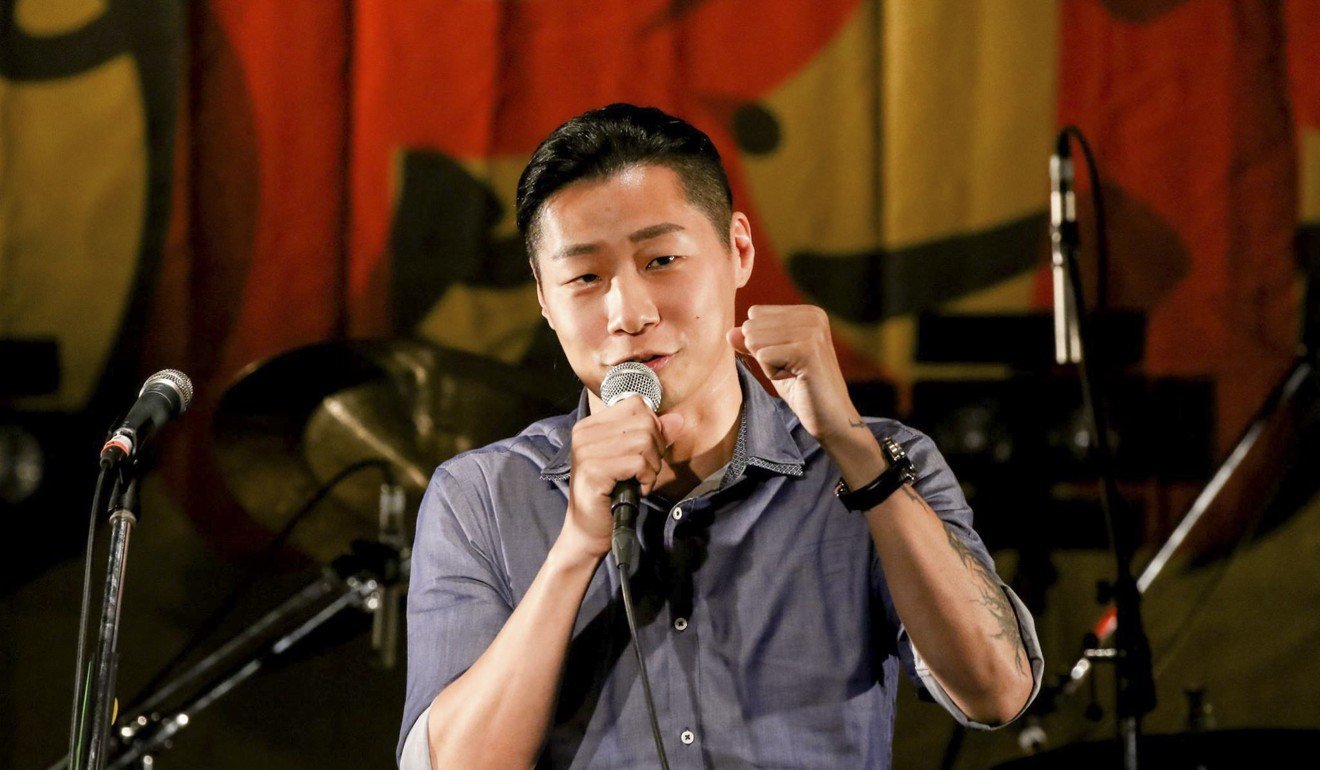
Immigration officers detain Japanese politician Kenichiro Wada at Hong Kong airport for two hours before denying him entry to city after pro-democracy stance upsets Beijing
Immigration Department stays silent on reasons for banning Kenichiro Wada, who supported pan-democrat Au Nok-hin in March by-elections and had been accused of advocating Taiwan independence
A Japanese politician accused by pro-Beijing media of advocating Taiwan independence and criticised by the Ministry of Foreign Affairs for intervening in Hong Kong elections was denied entry to the city early on Friday morning.
The ban imposed on Kenichiro Wada, a city councillor from Shiroi, Japan’s Chiba Prefecture, has renewed concerns that Hong Kong is under pressure to bar visitors deemed unacceptable to Beijing.

“I find it regrettable if the Hong Kong government mistakes me as its enemy because of the inaccurate media such as [newspaper] Wen Wei Po,” Wada wrote on his Facebook page.
“I believe the misunderstanding will be solved some day.”
A spokesman for the Immigration Department said it would not comment on individual cases. The spokesman would not say if the ban was requested by Beijing or the Hong Kong government, nor comment on the possible existence of a list of people to be denied entry.
The department only said that it would make decisions in accordance with the city’s laws and prevailing immigration policies.
Threatening letters sent from Hong Kong make British human rights activist ‘more determined’ to speak up for city
Au, who spoke to Wada, said the Japanese politician had arrived in the airport on Thursday night and was informed of the ban at about 1am on Friday. During his detention, immigration officials asked Wada where had he been during his previous visits to the city and why the hotel number he provided did not work.
Immigration officers also turned down Wada’s requests for a translator and to contact the Japanese government, Au added.
The Hong Kong lawmaker said Wada had already repeatedly dismissed the accusations by pro-Beijing media as inaccurate, and slammed the government’s move for eroding the “one country, two systems” principle.
Wada’s visit in March drew criticism from pro-Beijing newspapers and eventually China’s Ministry of Foreign Affairs.

Several media outlets, including Wen Wei Po, Ta Kung Pao and Commercial Daily, accused the Japanese politician of supporting Taiwan independence. They argued Au should be disqualified from the race too because of his association with Wada.
The Ministry of Foreign Affairs slammed Wada for openly intervening in Hong Kong’s elections, which it said had “recklessly” violated international law. The ministry added it had also lodged a protest with the consulate general of Japan in Hong Kong regarding the visit.
Wada, who has kept an eye on Hong Kong’s political development, had also met Agnes Chow Ting of Demosisto in 2016, when the pair exchanged views on youth participation in politics.
EU concerned over ‘gradual erosion’ of Hong Kong’s autonomy
Wada is only one of a number of overseas politicians and activists who have been denied entry to Hong Kong in recent years for political reasons.
Last October, the British government demanded an “urgent explanation” from Hong Kong after Benedict Rogers, a human rights campaigner known for raising concerns about political freedom and human rights in Hong Kong, was refused entry to the city.
In 2016, Freddy Lim Chang-zuo, of the pro-independence New Power Party and a member of the Taiwan parliament, was denied a travel visa to Hong Kong. At the time Lim said Hong Kong’s freedom was being eroded quickly.

The ban came just days ahead of a talk by Andy Chan Ho-tin, the Hong Kong National Party convenor, at the Foreign Correspondents’ Club, which the Ministry of Foreign Ministry asked the club to scrap as it argued the FCC should not provide a platform for separatists.
In a statement, Demosisto demanded the Immigration Department and the Security Bureau explain the decision to deny Wada entry. It further urged authorities to make public any list of banned foreign politicians and the standard by which the government decides who should be allowed to enter the city.
Public fears pressure from Beijing is leading to end of press freedom in Hong Kong
“As long as the individual does not pose immediate harm to the general public, regardless of their political views, they should naturally be able to obtain legal travel documents which would grant them the freedom of movement,” the Demosisto statement read.
“The government’s refusal to let foreign politicians enter Hong Kong based on their political stance in recent years is a clear violation of the International Covenant on Civil and Political Rights, as well as a manifestation of the state of corruption of the “one country, two systems” principle.”
The group called on the international community to pay attention to the banned foreign politicians to prevent the government from hindering the exchange of ideas among global civil societies.

